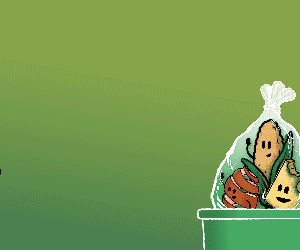
According to a 2017 survey by the Centers for Disease Control and Prevention (CDC), 12% of men aged 18 and older in the United States are considered to be in fair or poor health. Because many men often don’t see a doctor until in the later stages of physical/mental ailments, it’s important to know that catching a disease in its early stages can often be the difference between life and death!
With Men’s Health Week being recognized nationally June 10-16, Kaiser Permanente is providing health advice and tips on how men need to better identify and understand some of the ailments that commonly affect them.
Heart Disease
According to the CDC, heart disease is the leading cause of death in the United States for men in most racial/ethnic groups. The CDC notes that half of men who die suddenly of coronary heart disease have no previous symptoms, adding between 70% and 89% of sudden cardiac events occur in men.
“A Diet lacking in fruits, vegetables and whole grains; smoking, high blood pressure, and high LDL cholesterol levels are the of the most critical risk factors for heart disease among men,” said Dr. Columbus D. Batiste II, a cardiologist with Kaiser Permanente Southern California. “Other medical conditions and poor lifestyle choices that will put men at a higher risk of heart disease include being overweight or obese, diabetes, uncontrolled stress, a lack of exercise and excessive alcohol use.”
Kaiser Permanente offers tips on how to keep a healthy heart.
High Blood Pressure
Also known as hypertension, high blood pressure typically has no signs or symptoms, making it that much more dangerous. Unless treated, however, the consequences to men’s health can be serious.
African American men are more likely to suffer from hypertension, which can be attributed to that community’s extra sensitivity to salt, a major factor that can cause high blood pressure.
That is why it’s important for African Americans to better understand this health condition, and know how to protect themselves such as lowering their salt intake, as well as the importance of exercise. High blood pressure typically has no signs or symptoms, which makes it that much more dangerous. In fact, it’s for that reason that hypertension is often called a “Silent Killer.”
Prostate Cancer
About 12 out of 100 men will be diagnosed with prostate cancer during their lifetime, according to the National Cancer Institute. If detected early – and with proper treatment – most men will survive prostate cancer.
For African American men, the risk of dying from low-grade prostate cancer is double that of men of other races, according to the National Cancer Institute. That is why early treatment is so critically important.
The following factors can elevate risk of prostate cancer:
1) Presence of close male members of the family who had prostate cancer.
2) Inherited genetic mutations, such as BRCA1/BRCA2 genes and Lynch syndrome.
3) A non-cancerous enlargement of the prostate gland can increase risk.
4) A diet high in red meats, processed foods and high-fat dairy and low in fruits and vegetables.
5) Obesity.
6) Men older than 65 have a higher risk.
7) African-American men and Caribbean men of African ancestry are more likely to be diagnosed with prostate cancer.
“That’s why discussing appropriateness of screening for prostate cancer is critical as men get older, even when there are no clear symptoms,” said Dr. Michael Soleimani, a family medicine physician and director of quality with Kaiser Permanente Southern California. “When it comes to prostate health, I encourage men to not ignore this health issue, and to ask their doctor if testing is advisable. The fact is, when detected early, prostate cancer is highly treatable.”
Depression
Depression can strike any person at almost any age. However, depression is a major mental health concern among men, because many men who are depressed may show anger or aggressive behavior instead of being sad, according to the National Institute of Mental Health. Furthermore, the NIMH notes men are less likely than women to recognize, talk about and seek treatment for depression, although this mental health disorder affects a large number of males and requires medical attention.
“Men with depression exhibit different symptoms, but there is some commonality,” said Dr. Juan-Carlos Zuberbuhler, a board-certified child/adolescent/adult psychiatrist with Kaiser Permanente Southern California. “Common depression symptoms include a loss of interest in work and family, exhibiting anger, feeling restless, feeling a need for alcohol or drugs in order to escape or avoid the anguish they are feeling, and becoming more and more isolated. If any of that occurs, it’s important to seek treatment. Taking care of your mental health and asking for professional help is a sign of courage and strength, not weakness. A major trait of resilient men is that they both give and reach out for help when they need it.”
Kaiser Permanente offers information on how to better cope with depression.
Sleep Apnea
According to the American Sleep Apnea Association, it is estimated that 33 million Americans suffer from sleep apnea, with 80 percent of moderate and severe obstructive sleep apnea (OSA) cases being undiagnosed. OSA is caused by blockage of the airway during sleep, and is most commonly diagnosed in men age 40 and older, especially those who are overweight or obese.
“If left untreated, this sleep disorder can cause major health problems,” said Dr. Dennis Hwang at Kaiser Permanente Southern California Sleep Center in San Bernardino. “That includes high blood pressure, heart failure, atrial fibrillation, stroke and other cardiovascular problems. Sleep apnea is also associated with type 2 diabetes and depression. The good news is that several therapies are available that are proven to improve sleepiness, quality of life, and possibly cardiovascular risk.”
Sleep apnea care instructions provided by Kaiser Permanente are available here.














